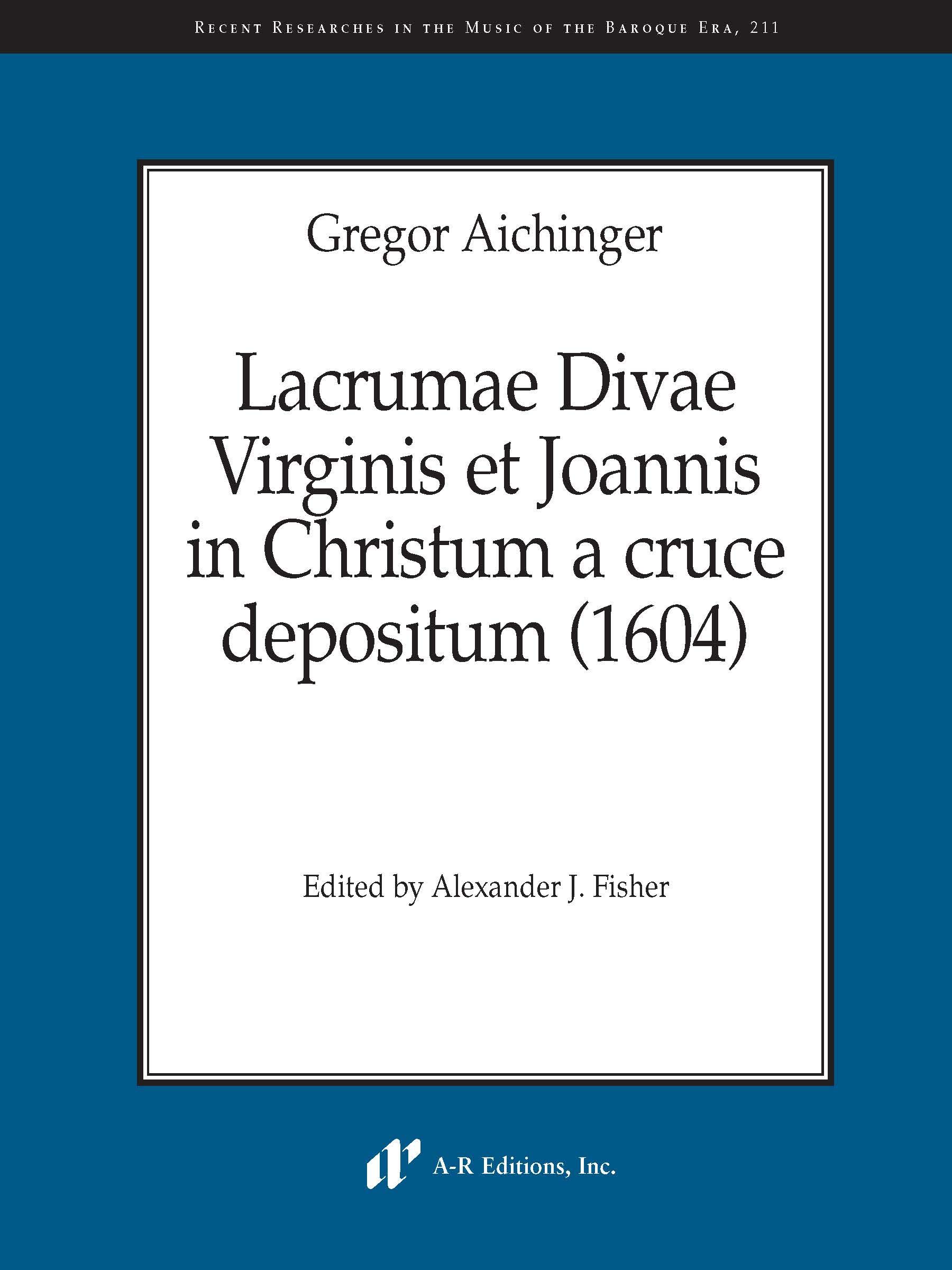Edited by Alexander J. Fisher
xviii, 5, 63pp.
Recent Researches in Music of the Baroque Era, 211
ISBN 978-1-8972-0549-7 $100
Throughout his life, Gregor Aichinger was associated with the “richest family in the world”, the Fuggers. Sponsored by them to travel and study in Italy, he repaid them with many publications (and doubtless other musical tributes), among them this set of eight a cappella motets. They set texts by Marcus Welser, a wealthy city official in Augsburg, where (among other duties) Aichinger played the organ (financed – of course – by the Fuggers) at the church of SS Ulrich und Afra. The building houses a large bronze “Crucifixion” by Hans Reichle (the first of five illustrations in the edition) which was completed in 1605 – the year after the publication of Aichinger’s music. Fisher’s “loose connection” between the three (though he acknowledges the striking thematic links) is surely an overdose of academic caution!
Although Aichinger studied in Venice with Gabrieli, there is little evidence of that in these motets. That is why, in addition to the Baroque tag, I have added a Renaissance tag, too – this music inhabits the grey world of musical stylistic change around 1600. The first seven short pieces are scored for five voices (SMATB), while the last adds a second tenor. Mostly cast in 4/2 bars, Fisher opts to represent tripla (3) in 3/1 in the fourth motet but in 3/2 in the final piece. I cannot help thinking that this is because he (like others) is afraid to acknowledge that our modern barring system (and subsequently some of our understanding of the interrelationship between time signatures) just does not like joins, where half of a bar is notionally a triplet version of the other half. That said, this is a well laid-out volume with minimal editorial intervention. Having such a clean page allows one to appreciate one aspect of the music that Fisher draws attention to in his rich introduction: the way Aichinger respects the clarity of Welser’s texts.
Brian Clark
